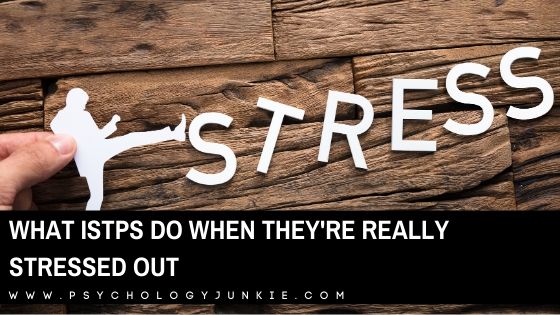Why You Need Quiet, Based On Your Myers-Briggs® Personality Type
Do you ever wish the world would just quiet down and give you a moment to think? Does it ever seem like the distractions, demands, and duties around you are keeping you from truly living? In today’s article we’re exploring why silence is crucial to the well-being of every Myers-Briggs® personality type (and not just the introverts!)
Let’s get started!

Not sure what your personality type is? Try out our most highly recommended personality questionnaires:
- You can take our free personality questionnaire here
- You can take Personality Hacker’s highly accurate personality questionnaire.
- You can take the official Myers-Briggs Type Indicator® for $49.95
This article contains an affiliate link to a questionnaire on Personality Hacker. If you purchase one of their courses, I get a small kickback that I can use to pay for hosting and other demands of this site. I only recommend courses I love.
Why You Need Quiet, Based On Your Myers-Briggs® Personality Type
The ISTJ
Silence brings clarity and comfort to the ISTJ type. In the world of activity ISTJs focus on organizing, deciding, and coming up with objective solutions to problems. Making life more efficient and streamlined takes up a lot of their time. This is why ISTJs are often counted on in the workplace; they know how to map out goals and create precautions and contingency plans.
But silence is especially crucial to this introverted type. In the quiet, ISTJs can tap into their knowledge base, organize their memories, and re-evaluate what matters to them. Are they living in line with their values? Are they acting with integrity? What meaningful moments from the day will they store away for later reflection? What wisdom can be extracted from the day’s experiences?
The ISTJ can also use silence to access their “Si”, or introverted sensing. This is the cognitive function that allows people to reflect on past experiences and find connections between them. In quiet moments, ISTJs often have vivid memories of people and events from their lives. These sensory impressions help them understand themselves and the world around them on a deeper level.
What Happens When ISTJs Don’t Get Enough Silence:
- They make less careful decisions
- They are more disorganized and impatient
- They become stressed and confused
- They become more irritable and tired
- They are less in tune with their values and identity
- They may feel like they don’t know who they are anymore
Discover More About ISTJs: 24 Signs That You’re an ISTJ, the Detective Personality Type
The ISFJ
Silence provides respite and relief for the relationship-focused ISFJ. In the midst of people, ISFJs naturally pick up on needs, emotions, and responsibilities. It can be easy for them to get wrapped up in social obligations and demands even though they are introverted and require more alone time than an extroverted personality type.
For the ISFJ, time alone allows them to tap into the memories and recollections that fuel their spirit. Whether they’re re-reading a favorite book or sitting by a fire and recalling previous fireside moments, in the silence they extract the intangible lessons life has offered to them and the beautiful priceless moments that give life significance. In the quiet they can also assess the details of their lives and decide whether they’re living in alignment with their principles. They assess the logic of their decisions, recalibrate their direction, and maybe even learn about a subject that’s piqued their curiosity!
What Happens When ISFJs Don’t Get Enough Silence:
- They become over-stimulated and drained
- They feel suffocated by their responsibilities
- They have a hard time thinking clearly
- They may become forgetful or confused
- They may feel like they’re losing their foundation and steadiness
- They can feel irritated by people but compelled to help them anyway
- They can feel anchorless and without a clear sense of direction
Discover More About ISFJs: What It Means to be an ISFJ Personality Type
The ESTJ
ESTJs are action-oriented go-getters who thrive in the midst of a lot of activity. Organized and decisive, they enjoy making things happen and getting the world to be a more efficient, stable place. But even these hard-working extroverts need a moment of silence now and then.
In the silence, ESTJs extract the wisdom that can be unearthed from their memories and experiences. They can reflect on the day’s events and consider whether their decisions were in alignment with their values, and they can focus in on moments that were especially meaningful or significant to them. On top of that, this quiet time allows them to delve into any subjects that they want to gather more information on. Sensing-Judging types love collecting knowledge about their niche interests, so whether that knowledge pertains to investments or medieval weaponry, quiet time opens up space for these things.
What Happens When ESTJs Don’t Get Enough Silence:
- They can become more explosive and callous
- They may become detached from their values
- They can be impatient and reckless
- They can pursue too many possibilities and lack direction
- They can get stuck completing fairly useless busywork
- They make hasty and potentially disastrous decisions
- They may feel resentful about all the projects they have to take on
Learn More About ESTJs: 24 Signs That You’re an ESTJ, the Captain Personality Type
The ESFJ
ESFJs are people-oriented individuals who focus on relationships, connection, and community. It may seem to others like ESFJs have no desire for quiet or alone time, but like all types, even ESFJs need time to recharge in peace.
When ESFJs take time for silence, they allow themselves to reflect on the meaningful moments of their lives and find wisdom, purpose, and homeostasis. They can finally stop thinking about what everyone else feels, wants, or needs and consider the timeless moments that give life significance. This doesn’t mean ESFJs don’t spend some alone time worrying about a friend, child, or partner, but they will feel less distracted by an ever multiplying barrage of other peoples’ desires and emotions.
In alone time ESFJs also consider their principles and the truth of what they stand for. Are they aligning themselves with principles and ideas that are logically sound? Are they making decisions that are reasonable? As long as ESFJs don’t fight away alone time with constant busy-ness they can become more balanced, rational, and secure.
What Happens When ESFJs Don’t Get Enough Silence:
- They can become codependent and overly attached to others
- It can be hard for them to think clearly
- They can feel like they’re constantly treading water
- They may start neglecting their own needs
- They can get lost in other people’s problems
- They can feel less stable and grounded
Discover More About ESFJs: A Look at the ESFJ Leader
The INTJ
INTJs are visionary strategists who focus on mastery, competence, and analysis. On the outside they can seem composed, direct, and decisive. Like most Thinking-Judging types they keep their eyes on their goals and organize their lives to achieve objectives as directly as possible.
When INTJs take time for silence they allow the introverted part of themselves to recharge and breathe. They become deeply in touch with their intuition and often experience epiphanies or insights that help them refine their direction and map out their life path in an effective way. During this time they also get in touch with their inner values and emotions. While INTJs are notoriously hard to read or even stoic, they feel things deeply internally. They may keep their feelings close to the chest, but in moments of quiet and solitude they can sink into their emotions and process them fully.
INTJs who have a healthy relationship with silence and a healthy relationship with action are effective and insightful. They know how to rest, contemplate, and open their minds to their intuition. And at the right time they know how to take action, speak up, and show the world what they’ve discovered or hypothesized in the quiet moments.
What Happens When INTJs Don’t Get Enough Silence:
- They feel overstimulated and scattered
- They lose focus and direction
- Their decisions are too hasty
- They become out of touch with their emotions
- They lose touch with what really matters to them
- They can be irritable and callous
- They become exhausted and depleted
Find Out More About INTJs: 24 Signs That You’re an INTJ, the Strategist Personality Type
The INFJ
On the outside INFJs tend to look friendly, empathetic, and diplomatic. These sensitive introverts are attuned to the emotional worlds people live in and can often sense what people need, whether it’s a word of encouragement or a shoulder to cry on. On top of their emotional insight, they are often focused on responsibility and doing what’s expected of them. They are usually diligent with their work and friendships. But sometimes they can become pulled in too many external directions and exhausted as a result.
In the quiet moments, INFJs get in touch with their boundless and deep intuition. They look at the underlying meaning behind things, sense patterns that will play out in the future, and look for insights and epiphanies. When INFJs simply allow themselves to “be” without doing anything they often have their most crucial “aha” moments.
It’s in the quiet moments that INFJs also take stock of the logical principles they are organizing their lives around. They become more analytical, introspective, and questioning. They may research something that will help them understand their psychology better or they may ask questions to get to the logic of a concept they’ve been toying with mentally. They also often enjoy journaling and processing their emotions by writing them down and reading their feelings back to themselves.
What Happens When INFJs Don’t Get Enough Silence:
- They say yes to too many obligations
- They lose touch with what they want or need personally
- They feel overstimulated and mentally scattered
- They become unsure of themselves
- They feel drained and tired
- They lack the insight that usually guides them (and others)
Discover More About INFJs: 12 Amazing Fictional INFJ Characters
The ENTJ
Driven and enterprising, ENTJs look like the kind of people who are always on the go. Whether they’re mapping out strategies for their goals or delegating tasks, they seem to have a quick, intense energy. Competence and mastery are what drive them, and they have big ideas and ambitions that keep them in a frequent state of forward motion.
But even these in-charge types need to embrace silence now and then. In the quiet moments they relax their bodies, breathe, and quiet their often busy minds. If they can allow themselves to do this, they can get more deeply in touch with their intuition. This allows them to spot patterns, forecast, analyze trends, and discover unformed possibilities.
When ENTJs take time for quiet they also get more in touch with their deeply feeling inner core. Even though people often see ENTJs as lacking emotion, that is anything but true. In quiet moments ENTJs are often more attuned to their inner feelings, values, and emotional reflections. They may read poetry, philosophical quotes, or watch movies that make them reflect on the human experience or the emotions they are trying to process.
What Happens When ENTJs Don’t Get Enough Silence:
- They become agitated and more temperamental
- They make hasty, impulsive decisions
- They become out of touch with what matters to them personally
- They may make more ethically ambiguous decisions
- They lack the insight they crave
- Their strategies are less focused and ingenious
- They start feeling resentful of taking on so much work or responsibility
Find Out More About ENTJs: 10 Must-Read Books for ENTJs
The ENFJ
Silence brings a sense of calm and wonder to the people-centered ENFJ. To others, ENFJs seem friendly, engaging, and visionary. Insightful and curious about people, ENFJs can make people feel more fascinating than they’ve ever felt before! And while these types love connecting with others, they still need alone time to tap into their more contemplative, thoughtful side.
In the quiet, ENFJs get connected to their intuition as well as their thinking side. When they allow themselves to simply “be” without focusing on tasks, other people, or others’ expectations, they can gain some of their deepest insights. They often find that their intuition is spot on in these moments, and they trust it more. ENFJs also enjoy exploring different concepts and ideas in their minds, without having to share them with others right away. This allows them to process things more deeply and develop a stronger understanding of the world around them.
In a stress-free quiet state, ENFJs can also get more in touch with the thinking side of their personality. Perhaps they’ll enjoy playing a brainteaser, Sudoku, or an online game. Maybe they’ll research a concept or theory in depth and critically assess it and play with the ideas found there. ENFJs who balance their need for connection with their need for quiet time often are emotionally intelligent as well as analytical and logical.
What Happens When ENFJs Don’t Get Enough Silence:
- They are propelled by others’ needs and emotions
- They lose track of their own feelings or values
- They become impulsive and hasty
- They feel scattered and overwhelmed
- They feel like they can never be enough for anyone
- They become more irritable with others
- They become more self-critical and may try to detach
Discover More About ENFJs: 24 Signs That You’re an ENFJ, the Mentor Personality Type
The INTP
Driven towards mastery, INTPs are curious about concepts and groundbreaking ideas. To many people they are the quintessential introverts, but to some kindred spirits they can chatter about all manner of philosophies, concepts, and theories. INTPs need a great deal of alone time, but when they are in high-pressure jobs or frequent social environments people are likely to see them as a bit overwhelmed, detached, but not unfriendly. These analytical types enjoy getting the best results on whatever task they pursue and enjoy integrating information from various avenues. If they meet someone who has an interesting perspective or an area of expertise they will find satisfaction in listening and learning all they can – or swapping friendly arguments.
In the quiet, INTPs often find themselves analyzing the data they’ve been collecting. They enjoy researching various fields, piecing together information, and contemplating the implications of what they find. This is when INTPs are able to work on projects that require a lot of focus and attention to detail. They often need complete silence in order to work effectively, so if they can find a place where they can be relatively undisturbed they will be able to get a great deal done.
Silence isn’t simply for working, though. Many INTPs enjoy quiet moments to reflect on their favorite memories, past times, and routines. Whether they’re sipping tea and re-reading a favorite book or kicking back and listening to their favorite songs, they enjoy quiet routines that put them in touch with their past in a positive way.
What Happens When INTPs Don’t Get Enough Silence:
- They become more overstimulated and distractible
- They feel out of focus and mentally foggy
- They become overly concerned with how others’ feel about them
- They may feel like they’ve “lost” themselves
- Their logic can become less refined and on-point
- They are more tired and listless
Discover More About INTPs: 24 Signs That You’re an INTP, the Prodigy Personality Type
The INFP
INFPs are imaginative, empathetic souls who use their considerable gifts to make the world a better place. They often feel like they’re on the outside looking in, and this can lead them to be quiet and introspective. INFPs may seem shy at first, but once they get to know you they can be some of the most engaging people you’ll ever meet. These sensitive idealists have a knack for seeing both sides of every issue and they’re often able to find common ground where others see only differences. That said, they are true individualists at heart who don’t mind marching to the beat of their own drum.
INFPs need regular periods of alone time in order to re-charge their batteries and stay emotionally balanced. In the quiet, INFPs can explore their many interests and get in touch with what makes them…them. They often have very vivid inner lives and they may enjoy writing, painting, or other forms of self-expression. This is also when INFPs are able to connect with their sensing side. This side of themselves focuses on revisiting comforting routines and memories. Many INFPs enjoy re-reading favorite books or watching favorite movies during their quiet time. Some create sensory-pleasing experiences like lighting candles, wrapping up in a favorite fleecey blanket, and listening to a favorite set of songs.
What Happens When INFPs Don’t Get Enough Silence:
- They feel disconnected from their true nature
- They feel less authentic and focused
- They feel overstimulated and tired
- They feel pulled in too many directions
- Their creativity feels less meaningful to them
- Their energy feels low and they may feel unmotivated
Find Out More About INFPs: 24 Signs That You’re an INFP, the Dreamer Personality Type
The ENTP
ENTPs love mental stimulation and challenge. They are constantly exploring new ideas and seeking out new perspectives. ENTPs in particular are known for their quick wit, sharp debating skills, and unfiltered honesty. These “devil’s advocates” can be a lot of fun to be around, but they can also rub people the wrong way with their challenging viewpoints. As extroverts, ENTPs love engaging with people – especially if those people can discuss fascinating ideas and possibilities with them. But to really calibrate their ideas and make them workable, even ENTPs need some time for quiet.
In the quiet, ENTPs often find themselves mulling over various arguments and scenarios. They may be trying to poke holes in their own beliefs or map out a strategy for an innovative new idea. During the peace of alone time ENTPs are able to really refine their logic and come up with some of their best ideas. They also get more in touch with their body and focus on nurturing themselves physically (if they don’t get too carried away by ideas). Many ENTPs use this time to re-watch things that make them laugh, eat their favorite comfort snacks, or just relax and recharge.
What Happens When ENTPs Don’t Get Enough Silence:
- They feel restless and unable to focus
- They become too fixated on other peoples’ reactions (or their approval)
- They pursue half-baked ideas without thinking them through carefully
- Their humor becomes more biting and sarcastic
- They have less patience for people and things they don’t find interesting
- They may react with anger or frustration more quickly than usual
Discover More About ENTPs: A Look at the ENTP Leader
The ENFP
ENFPs are charming, outgoing, and full of life. They love nothing more than sharing their ideas with others and bringing the magic of possibility to life. ENFPs have a unique ability to see potential in people and situations – any ordinary afternoon could be transformed into an adventure with the right person and the right mindset. As such, ENFPs are often drawn to people who can keep up with their fast-paced ideas and curiosity.
That said, even ENFPs need time to slow down and be alone. In the quiet, they’re able to get in touch with their introverted feeling side. This is the side of themselves that processes emotions more slowly and deliberately. ENFPs may find themselves journaling, spending time in nature, or exploring their creative hobbies (like writing, painting, or crafting). They may also enjoy revisiting old memories – both happy and sad ones. This can be a time for ENFPs to grieve losses, process difficult emotions, and reflect on the progress they’ve made in their lives.
What Happens When ENFPs Don’t Get Enough Silence:
- They feel scattered and unable to focus
- They are less patient with people
- They are more out of touch with reality
- They can be too impulsive and hasty
- They are more likely to make snap-judgments
- Their decisions are less in line with what they really want
Discover More About ENFPs: A Look at the ENFP Leader
The ISTP
ISTPs are calm, cool-headed, and practical. They have a natural drive to understand how things work and are often drawn to hands-on hobbies like mechanics, woodworking, or programming. As introverts, they often prefer to work alone or in small groups where they can focus on the task at hand without distractions. But they also enjoy hanging out with their closest friends, as long as those friends have a sense of humor, a sense of adventure, and don’t take themselves too seriously.
In the quiet, ISTPs are able to really focus on their internal world. This is the time when they organize information and ideas into logical categories. They prioritize their lives and decisions, fill “holes” in their models and frameworks, and consider the impact of their decisions. Quiet time also allows ISTPs to tap into their intuitive side. The ripple-effects of their decisions become more apparent, they have more patience for theoretical speculation, and they may even find themselves fascinated by meditation, spirituality, or philosophical ideas.
What Happens When ISTPs Don’t Get Enough Silence:
- They become impatient and irritable
- They have less patience for theory and speculation
- They become more impulsive and thrill-seeking
- They may struggle to see the big picture
- They may hyper-fixate on small details or problems
- They can become more insecure and focused on how other people perceive them
- They become more stressed and energy-depleted
Discover More About ISTPs: The ISTP – An In-Depth Look
The ISFP
On the outside, ISFPs often appear mysterious but friendly, creative but grounded. They are drawn to experiences that get them in touch with emotion and experience of life. Whether they’re analyzing the characters on a television show or dancing to the beat of a favorite tune, ISFPs want to grasp the human experience in all its rich emotional and feeling intensity. However, they crave this intensity internally more than they express themselves outwardly. As introverted feeling types, many ISFPs keep their feelings close to the chest, only sharing them with a select few.
In the quiet, ISFPs are able to access the full depth and breadth of their internal emotions. This is a time for them to process their feelings, reflect on past experiences, and connect with their authentic selves. ISFPs may find themselves journaling, listening to music, or spending time in nature. This quiet time enables them to assess their emotions to understand what’s important to them, consider whether they’ve been living with integrity, and prioritize the ideas and dreams that are ultimately meaningful to them.
What Happens When ISFPs Don’t Get Enough Silence:
- They become more impulsive and reckless
- Their decisions may not be in line with what they really want
- They feel more irritated by interruptions
- It becomes harder for them to see the big picture
- They are more likely to “leap before they look”
- They become exhausted and weary
Explore More About the ISFP Personality Type
The ESTP
ESTPs are high-energy, action-oriented types. They are constantly on the lookout for new opportunities and experiences that will bring them intensity. Living life full-speed and experiencing all the sights, sounds, and adventures life has to offer is something that inspires them. People often see them as competitive, charming, and impactful.
In the quiet, ESTPs are able to focus on their thoughts more carefully. They begin to prioritize their lives, and organize their ideas and actions based on what’s most logical or in line with their principles. Rather than recklessly going from one thrill to another, they take stock of their lives and look at the consequences of their decisions. Solo leisure activities like gaming, reading, or working on a challenging project can help ESTPs focus their energy in a productive way.
What Happens When ESTPs Don’t Get Enough Silence:
- They become more easily agitated and short-tempered
- They find it harder to concentrate and focus on one thing
- They make impulsive or hedonistic decisions
- Their decisions are less rational
- They throw caution to the wind
- They feel pulled in too many directions
Discover More About the ESTP Personality Type
The ESFP
ESFPs are fun-loving, social types. They crave connection with others and enjoy being in the thick of things. Whether they’re hosting a party, going out on a date, or dancing at a concert, ESFPs want to share experiences with the people they care about. They are known for their zest for life, spontaneity, and ability to have a good time no matter what. But even these lively extroverts need moments of peace and quiet.
In the quiet, ESFPs can focus on their own internal thoughts and feelings. This is a time for them to reflect on their values, process their emotions, and connect with their truest selves. ESFPs enjoy watching movies that stir their emotions, journaling their thoughts to make sense of their relationships and feelings. This quiet time also helps them to make decisions that are more personally meaningful to them; they may pursue projects that align with a cause that’s close to their hearts.
What Happens When ESFPs Don’t Get Enough Silence:
- They become more easily angered
- Their decisions are more reckless and hasty
- They may chase after excitement at the expense of their well-being
- They may lose touch with their physical health
- They don’t take time to process their emotions and so they react without thinking
- They start to feel tired and confused
- They lose sight of the big picture
Read This Next: What It Means to be an ESFP Personality Type
What Are Your Thoughts?
Do you have any helpful tips for other people with your personality type? Leave your thoughts and suggestions in the comments!
Discover more about your personality type in our eBooks, Discovering You: Unlocking the Power of Personality Type, The INFJ – Understanding the Mystic, The INTJ – Understanding the Strategist, and The INFP – Understanding the Dreamer. You can also connect with me via Facebook, Instagram, or Twitter!









I’m interested in being coached.
Hi Tammy! There are three Myers-Briggs focused coaches I always recommend: Denzel Mensah (https://linktr.ee/Deezy2blessed), Joyce Meng (https://www.joycemengcoaching.com/), or Leslie McDaniel (https://hellopersonality.com/). I hope that helps!
What does ISTJ stand for?
Hi Claude! It stands for Introvert/Sensor/Thinker/Judger. You can find out more about what those terms mean here: https://www.psychologyjunkie.com/2019/06/03/a-brief-guide-to-the-mbti-for-busy-people/